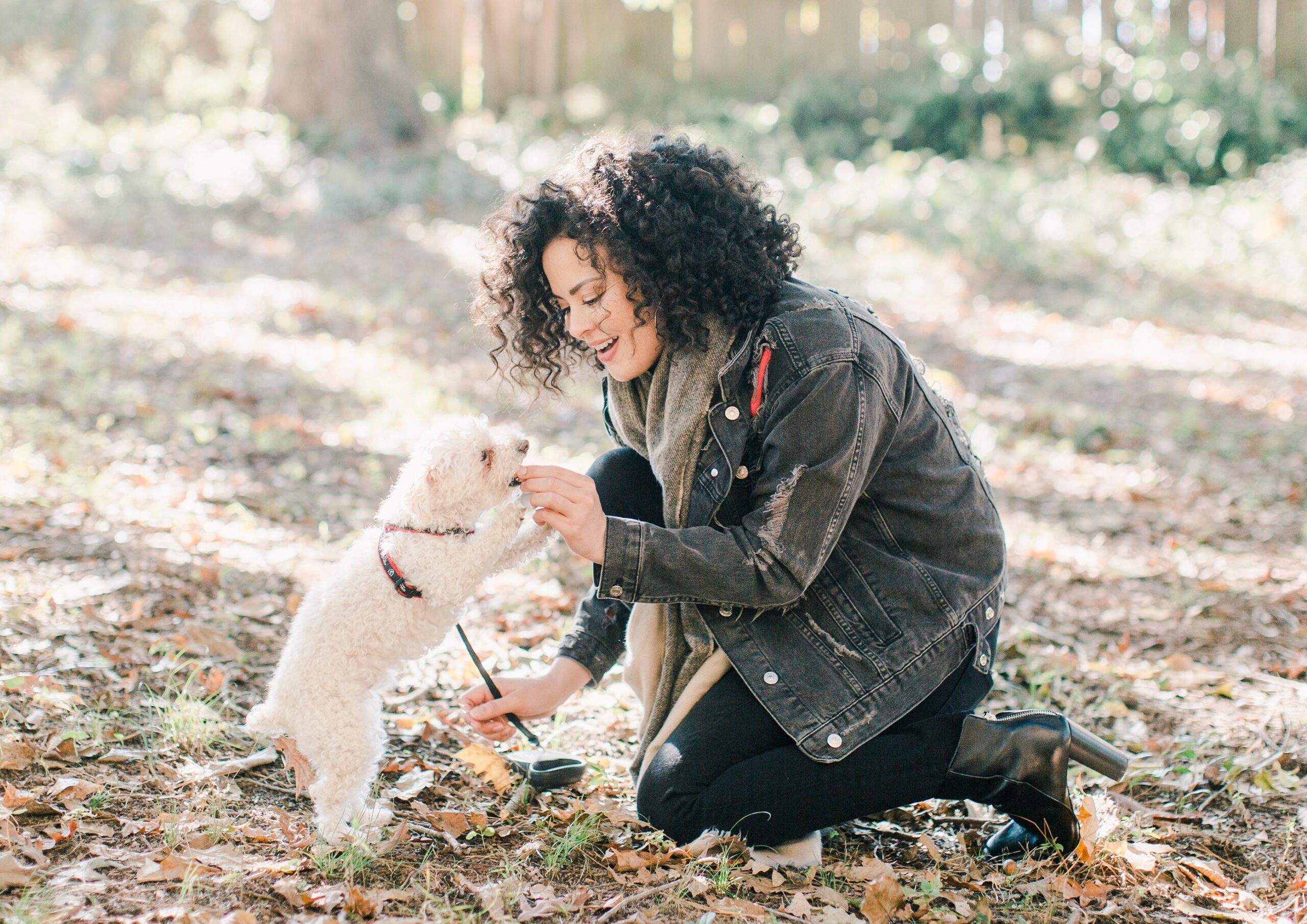Reward based training for dogs

Reward-based training for dogs
There’s more to training dogs than just sitting down or lying on their back when they’re asked to. Some people invest in dog training to teach the animal not to jump on people, while others want to make sure it doesn’t bite, run away when the leash is on, and others.
But did you know that the way you go about training your canine buddy can make things difficult for both of you?
Dog training must be done with positive reinforcement. The idea is to reward good behaviour rather than punish them when they act out. But then again, not all aspects of reward-based training are the same. Some work, while others do more harm than good.
Now let’s look at what you should and shouldn’t do in reward-based dog training.
Dos
1. Do use praise as frequently as possible.
Praise your canine friend frequently, even if it didn’t do what you wanted it to. Be enthusiastic when you praise them since it’ll make them more likely to repeat the behaviour to get more positive attention.
2. Do embrace consistency.
Do not punish your dog one time and praise it another. This confuses canines as they can’t tell what’s good for them and what’s bad, so be consistent with the actions you take. The words you use are also important during training since they should always convey positive messages to your pet.
3. Do take advantage of your dog’s favourite moments.
Food or treats are a given, but some dogs like to play all the time, while others want to cuddle up with you on the couch. There’s a time for everything, so exploit those favourite moments of your canine friend and use them as ideal training times. It’s not necessarily always about treats. Reward-based training means giving in to what your dog loves the most, as it’ll be the most effective way to get them to obey your commands.
4. Do make every session short and sweet.
Training sessions should never last longer than 20 minutes if you don’t want your canine to become bored with what you’re doing. Remember, dogs get bored and distracted with monotonous training sessions that last for hours. This also helps them stay attentive to learn faster since training is always more effective when the dog’s attention is focused on you and not on any distraction.
5. Do exercise patience.
Having said that, training does take time, so it shouldn’t be rushed. When using treats as rewards, it’s best to give the treat only when the dog has done what you wanted them to do but hasn’t yet finished doing it. That is because your pet still needs a bit more time to complete the action.
6. Do practice commands in multiple locations and situations.
When you do reward-based training, it’s best to teach your dog commands in various locations and situations. This trains them to obey the command no matter where they are since they’ll know what will follow if they listen to you. It’s a mistake to confine the training to one location only, as you should take advantage of your dog’s senses by training them to listen to no matter where they are.
7. Do teach your dog one command at a time.
You should only train your dog one command at a time. Yes, it takes longer to teach them that way, but you wouldn’t want to confuse or overwhelm them with more than one command, would you? If your canine friend doesn’t know how to sit yet, for example, don’t let them learn how to roll over until they’ve perfected the former.
8. Do use a training collar only when needed.
You should avoid using a training collar whenever possible since it can be quite dangerous if inappropriately used. Instead, try to get your dog to obey you without the need for a training collar, which doesn’t give them much leeway in terms of movement. In fact, a training collar goes against the very concept of reward-based training that breeds trust between pet and master.
9. Do use a familiar tone of voice while giving commands.
This one is pretty simple since you’ve probably already formed a bond with your dog, so it knows how to listen to you. Just make sure that you don’t speak too softly when giving the commands, but not in an overly loud manner either. Dogs can be sensitive to changes in tone, so you shouldn’t raise your voice when giving a command. Just speak normally, and your pet will understand what’s expected of them.
Don’ts
1. Don’t end a training session on a low note.
You should never end a training session on a low note, or your dog will think that they’ve done something wrong. Give them a break and end the session on a high note, letting them know that they’ve done an excellent job. This will leave your canine buddy optimistic about training sessions.
2. Don’t start by giving treats.
One common mistake in reward-based training is starting with a treat in every training session. If the dog has not been trained well enough without food involved, they’ll be highly motivated by you only when a treat is present. Once you’re through with their basic training, though, you can already stop using treats or at least use them less frequently when communicating with your pet.
3. Don’t rely on food as a reward for every action.
You should only use food as a reward for actions your dog doesn’t do very often and should be discouraged from doing, i.e. chewing on household items or jumping up on people. It’s wrong to expect them to learn everything you command quickly so that they can get the treat. Food as a reward is only good for actions that they haven’t yet been trained to do. Once you’re finished with their basic training, try using verbal praise as an alternative to food rewards.
4. Don’t ever hit or scold your dog for not obeying a command.
It’s much better to motivate them by giving them treats and lots of love than making them think you’re a tyrant. Doing so will create fear in your pet instead of respect. You can never teach them anything if they’re afraid of you, so make sure to handle your dog with care and love instead of violence.
5. Don’t let your dog get bored during the training sessions.
While reward-based training may require more time than traditional methods since it’s based on trust instead of fear and discipline, you can’t just take as long as you want. You should only spend 15-20 minutes with your pet per session since they may get bored or tired afterwards if the training lasts for too long. Also, don’t just repeat the same thing over and over again without showing any change in behaviour at all.
6. Don’t reward your dog for doing something wrong.
If you want to correct any misbehaviour or bad behaviour, then you should never give them a treat for it. This might confuse the dog and make them think they’re doing what you’re asking of them. Instead of giving them treats for good behaviour, give them positive reinforcement every time they do something right.
7. Don’t abruptly stop training your dog for something they haven’t yet learned to do.
If you’ve been teaching them how to sit, lay down or rollover, then don’t just suddenly stop helping them learn something new because it could frustrate them. Be patient and continue showing them how to do it by rewarding them for any little progress they make at each training session.
8. Don’t resort to deception.
When your puppy or dog does something wrong, and you don’t want to train them for it, then at least tell them honestly that they aren’t supposed to do it instead of deceiving them. This is very important since you’re teaching them right from wrong and should be honest about what they’re doing. Lying to your best friend can do more harm than good.
It’s All About the Fun
Reward-based training could easily overwhelm a first-time dog owner like you, especially with all those dos and don’ts. But don’t get carried away by them; all you have to do is enjoy every session. Make your dog feel that training is always a fun activity. Once you’ve done so with this article as your guide, they’ll be motivated to learn no matter what.






